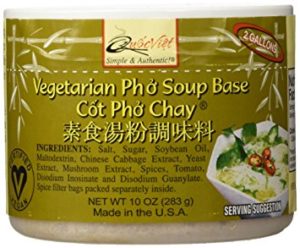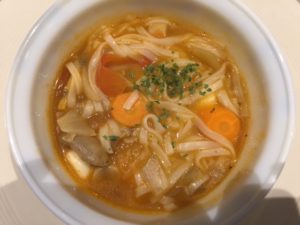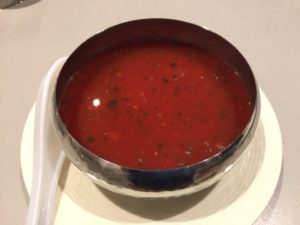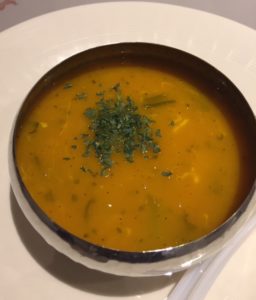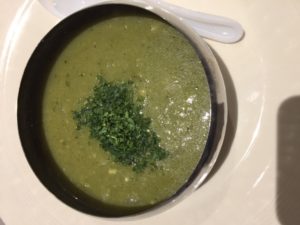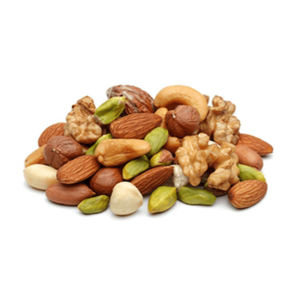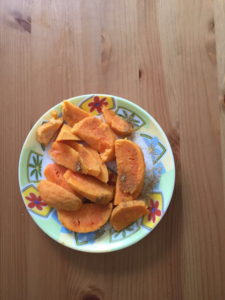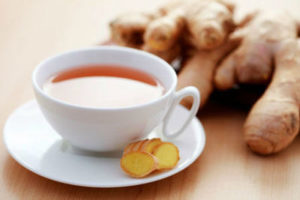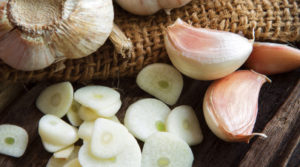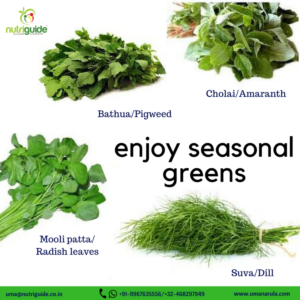
Travelling is a lot of fun but the struggle is real when it comes to eating healthy while traveling . But just because you’re travelling doesn’t mean you have to eat foods that will leave you feeling depleted, bloated, and tired. Well, fear no more! Making better food choices will have a positive impact on your leisure time. Here are some simple yet effective strategies to help you stay healthy during travel this season and enjoy some delicious food as well.
Before you go:
Plan Ahead-A little planning and discipline can go a long way when it comes to eating healthy while travelling.
- Read up: Check out food recommendations on Trip Advisor or google before you visit a place. This gives you an insight on what kind of food is available, where are the best places to eat ,healthier restaurant chains and relishing some local delicacies.
- Ask the locals: Alternatively, you might want to ask around in your hotel or even friendly shop-keepers on where are the best places locals eat.
- Pack Smart: Pack foods that are nutrient-dense, non-perishable, and provide sustaining energy. Carrying some travel-friendly foods for travel always helps as we dont have access to food at regular intervals.Even if you’ve skipped your meal time, you may have some snacks to fill you up on the go.Following are the best picks:
- Nuts
- Dried Fruits
- Roasted Chana
- Popcorn
- Trail mix or Energy Bars( Preferably Homemade or Read the Nutrient Label Carefully before buying.)
- Puffed Rice Mixture(Murmura)
- Rice flakes Mixture(Poha Chiwra)
- Roasted Lotus seeds(Makhanas)
- Fresh fruit-Apple,bananas and oranges are great go -tos for this.
Nothing like if you can manage to carry an ice box or a cooler to help perishable food items last longer. Never the less here are few healthy perishable food items which may last for a day or two ( depending on weather):
- Low-fat yogurt
- Low Fat Cottage cheese
- Sliced cucumbers/baby cucumbers/baby carrots/cherry tomatoes
- Chutney Sandwiches
- Cheese slices
- Idli and Chutney
- Roti Rolls stuffed with veggies
- Dhokhla
- Methi Thepla
On your Trip:
Healthy eating starts where you stop:This can make or break your diet. If you pit-stop at a fast food joint, your food choices are limited to fast food. But if you stop at a proper restaurant or even a grocery store that offers whole or healthy snack options(idli/dhokhla/salads/humus), you will quickly expand your food choices.
- So look around(and get some physical activity too)before you stop.
- Scan the buffet.You will find healthy options too.
- Take a look at the menu online or ahead of time, if available.
- Choose meat and fish items that are steamed, broiled, baked, grilled, poached or roasted.
- Choose vegetables that have been steamed over sautéed or fried. Avoid rich gravies.
- Ask for dressing accompaniments on the side such as dressing, sour cream, cheese, and mayonnaise.
Buy It on your way:If you weren’t able to pack in advance, you CAN make the right choice when purchasing food on the go. Salads, fruits,nuts,dried fruits,humus,idli,dhokhla are healthy options available in grocery stores. Though the options available will vary from place to place.
Have frequent small meals:Eating small amounts of healthy foods throughout the day sends a signal to your brain that the food supply is plentiful, so it’s okay to burn through those calories quickly.Eating too much or overeating in one meal—even if they’re healthy options—leads to storage of energy in body as fat. Also eating too much at one sitting can also make you sluggish and sleepy. So ensure you eat every 2-3 hours. It doesn’t have to be much. A handful of dry snacks you packed is enough.
Practice Hara Hachi Bu: A Japanese concept that means to eat until you’re 80 percent full. This prevents over eating and that bloated feeling. Rather eat smaller meals throughout the day and measure fistfuls for portion control.
One and done Rule: You’re allowed to cheat while travel, but breakfast, lunch, and dinner don’t all have to be gut-busting affairs. Pick anyone favourite high-calorie item a day, eat it, enjoy it and choose healthy rest of the day.
When in doubt, eat vegetarian: If you are not sure of the meat or the method of preparation, it’s safer to stick to salads and vegetarian food.
Don’t give in to Family or Friends: Whether you’re travelling with others or staying in their homes, our relatives and friends love offering food. Help them find other ways to express love and warmth such as spending good time over common hobby or sport or some other common interest.
Add edible tourism activities: To your itinerary — like visiting an artisan’s shop, a farmers market, a culinary walking tour or even taking a fishing lesson. This way you will get a chance to know about local foods and relish them.
Rent a condo with a fully equipped kitchen. It’s usually cheaper than standard hotel rooms if you are a large group and allows you to cook at least part of your meals.
Don’t forget to:
- Eat Breakfast: Don’t sleep in and move straight to lunch. Breakfast gives you the energy to start your day right.
- Get your sleep: Your body needs rest when you’re crossing time zones, carrying luggage to and fro, walking all day, and so forth. Traveling is harsh on your body so make sure you get plenty of rest.
- Stretch: Refresh yourself with 5-10 minutes of stretching in the morning or night – It’s easy to sneak in simple neck and shoulder stretches throughout the day while you’re waiting for your food, the bathroom, transportation, etc.
- Walk: Get your daily exercise and truly learn about a place at the same time. Ditch the escalator, take the stairs.
- Keep yourself hydrated: Carry water bottle with you at all times as thirst often masquerades as hunger.It will also help you avoid travel lag, symptoms of overexposure to the heat or sun, and junk-food cravings. If you are prone to upset stomachs or nausea, bring along a few herbal tea bags such as ginger or chamomile.Water and herbal teas are great ways to keep you going.
- Moderate alcohol and sweets Alcohol and non-alcoholic sweet drinks are packed with calories. Keep your calorie count and sugar intake lower by drinking lime water,coconut water,sparkling water instead.
- Eat Fruit As Snacks: Enjoy the complimentary fruit basket and eat easy to source fruit like banana’s, apples and oranges as quick go to snacks.
- Stay Mindful and Avoid Feel Bad food:Who wants indigestion, an upset stomach, or low energy when travelling? Eating unhealthy foods while travelling may be easy, but it won’t make travelling fun. Keep this in mind when perusing your options.They’re foods you crave, but leave you feeling sick or depleted after you eat them. When you’re on the road, it’s particularly essential to avoid foods that drain your energy and deflate your mood.
- Don’t worry. Be happy: While all of these tips can help you eat healthy food while travelling, the most important thing you can do throughout your trip is to not stress about food imperfection.Restrict yourself to limited guilt free and stress free indulgences. As the number one cause of digestive distress is stress. This means, you could be eating the most nutrient-dense food but if you’re stressed, you’re not only impairing the breakdown and absorption of your food, you’re also suppressing your immune system and increasing your likelihood of experiencing a reaction to a gut pathogen or food toxin.
In short, enjoy yourself and the opportunity you’ve been given to be on vacation. Don’t miss out on exploring all that new cuisines have to offer.
I hope you now have more confidence to eat healthy while travelling.
We would love it, if you share how you manage your travel here.
Coming Soon! Our Next Blog on Healthy New Year.
Follow us on fb https://www.facebook.com/UmaNarulaNutriguide/ for New Year Fitness and much more about Nutrition.
Uma Narula is an award winning practising Nutritionist since 10 years.If you have any queries you can email on uma@nutriguide.co.in or call on +91 99676 35556/+32 468 29 79 49.
